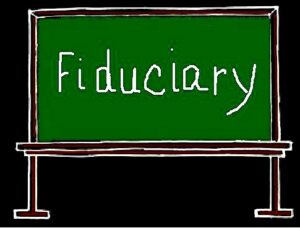
Disgorgement is the giving up of funds by a fiduciary where a breach of fiduciary duty was involved. They typically involve the restitution remedy of recovering ill-gotten profits made by the fiduciary.
There is a large degree of discretion in ordering disgorgement: Strother v. 3464920 Canada Ltd., 2007 SCC 24 at para. 74; Wang v. Wang, 2020 BCCA 15 at para. 59.
As Justice Cromwell notes in Kerr v. Baranow, 2011 SCC 10, all equitable remedies are characterized by the necessity of designing them to be responsive to the particular facts of each case:
This public interest aspect is served by the prophylactic purpose of disgorgement.
Disgorgement of a gain obtained in a breach of a fiduciary duty, irrespective of the plaintiff’s loss, “teaches faithless fiduciaries that conflicts of interest do not pay. The prophylactic purpose thereby advances the policy of equity, even at the expense of a windfall to the wronged beneficiary”: Strother at para. 77 [emphasis in original].
However, there are limits to prophylactic disgorgement -Pirani v Pirani, [2021] BCJ No 1725, 2021 BCSC 1530
Sarzynick v Skwarchuk 2021 BCSC 443 reviewed the remedies available for a breach of fiduciary duty including the equitable principle of disgorgement.
The equitable remedy of disgorgement serves two purposes:
One is restitutionary and the other prophylactic: Strother, at paras. 75–77. The restitutionary component of disgorgement aims to restore to the aggrieved party the benefits that they otherwise would have enjoyed, such as when a fiduciary usurps a business opportunity or purchases a property that otherwise would have gone to the beneficiary
Two- The prophylactic rationale aims to deter faithless behaviour and preserve the sanctity of fiduciary relationships by forcing the fiduciary to disgorge all profits obtained from their breach.
Prophylactic disgorgement arises even in circumstances where the beneficiary has suffered no loss. This can often result in a windfall for the plaintiff.
Where a fiduciary has retained profits by breaching their fiduciary obligations, they can be disgorged of their profits in one of two ways:
(1) by imposing a personal debt on the fiduciary, thereby requiring them to repay the unjustified gain; or
(2) by imposing a constructive trust requiring the fiduciary to transfer the gain to the aggrieved party (Kyle Estate v. Kyle, 2017 BCCA 329 at para. 37).
The use of remedial constructive trusts for disgorgement in the breach of fiduciary duty context is well-established:
in The Law of Restitution, loose-leaf (Toronto: Tomson Reuters, 2020) at 27:500, “a principal may assert a proprietary claim not only for misappropriated assets, but for property…and opportunities which the fiduciary has deflected and captured for personal benefit.”




